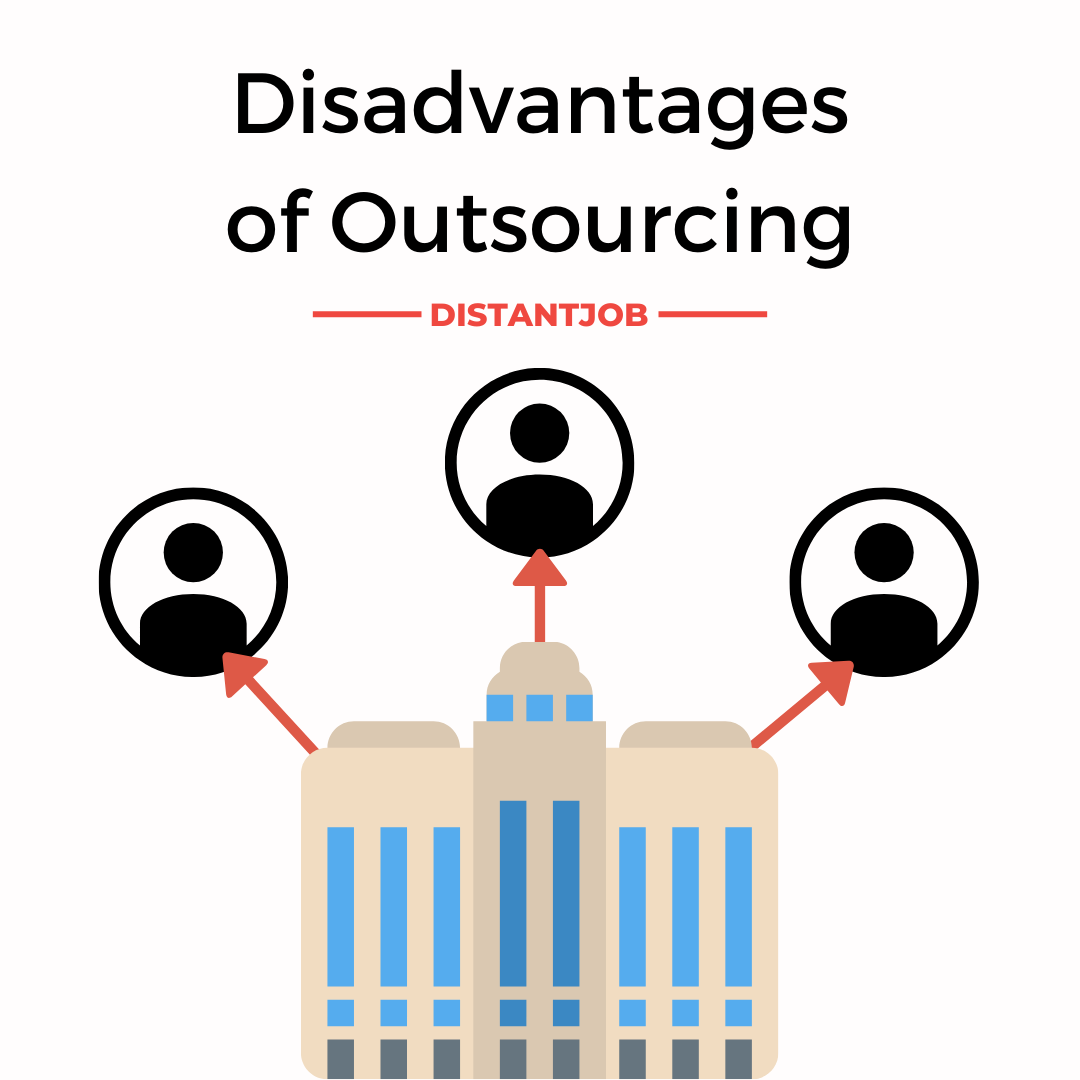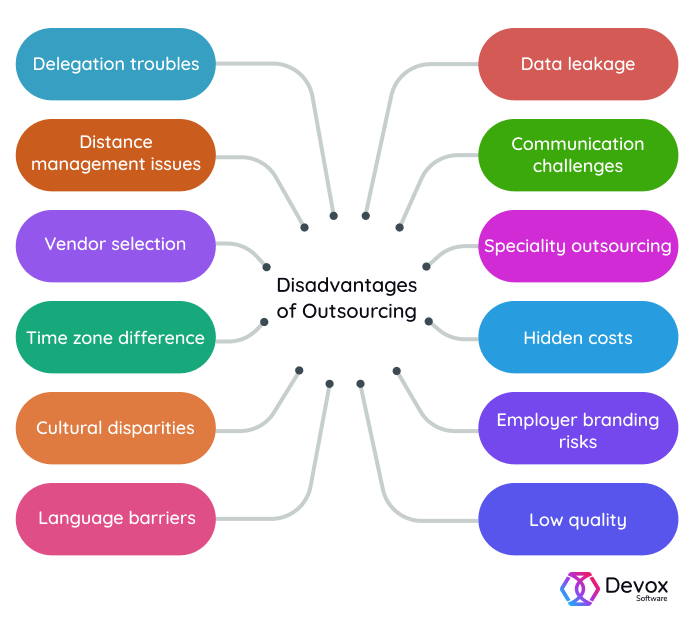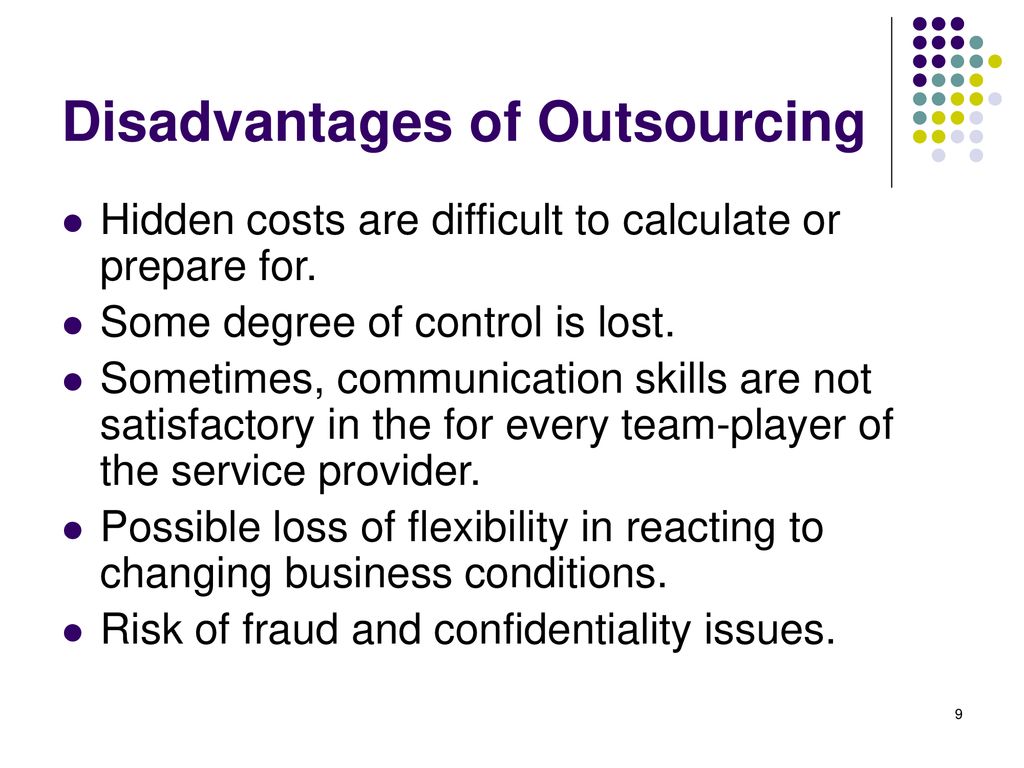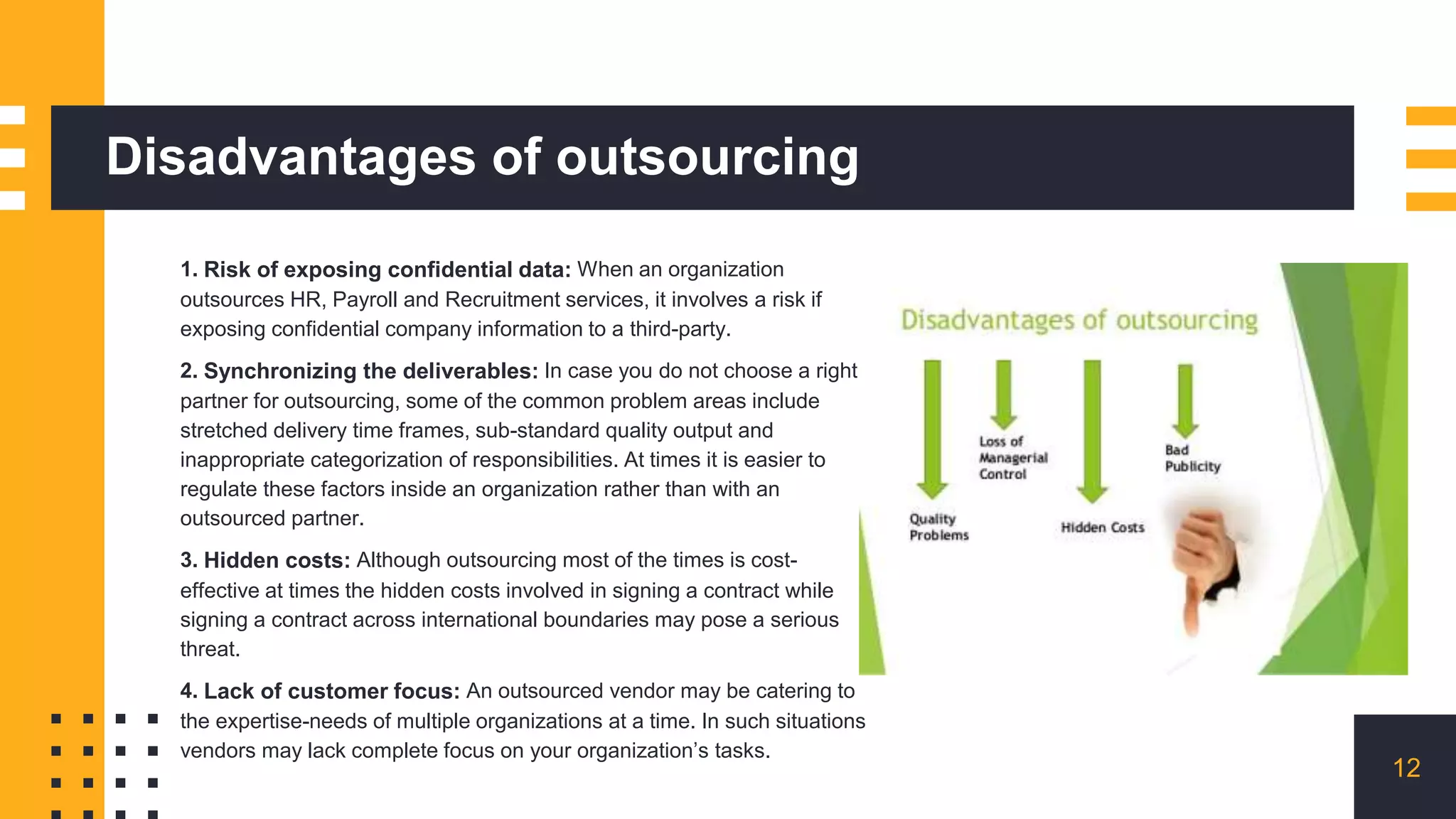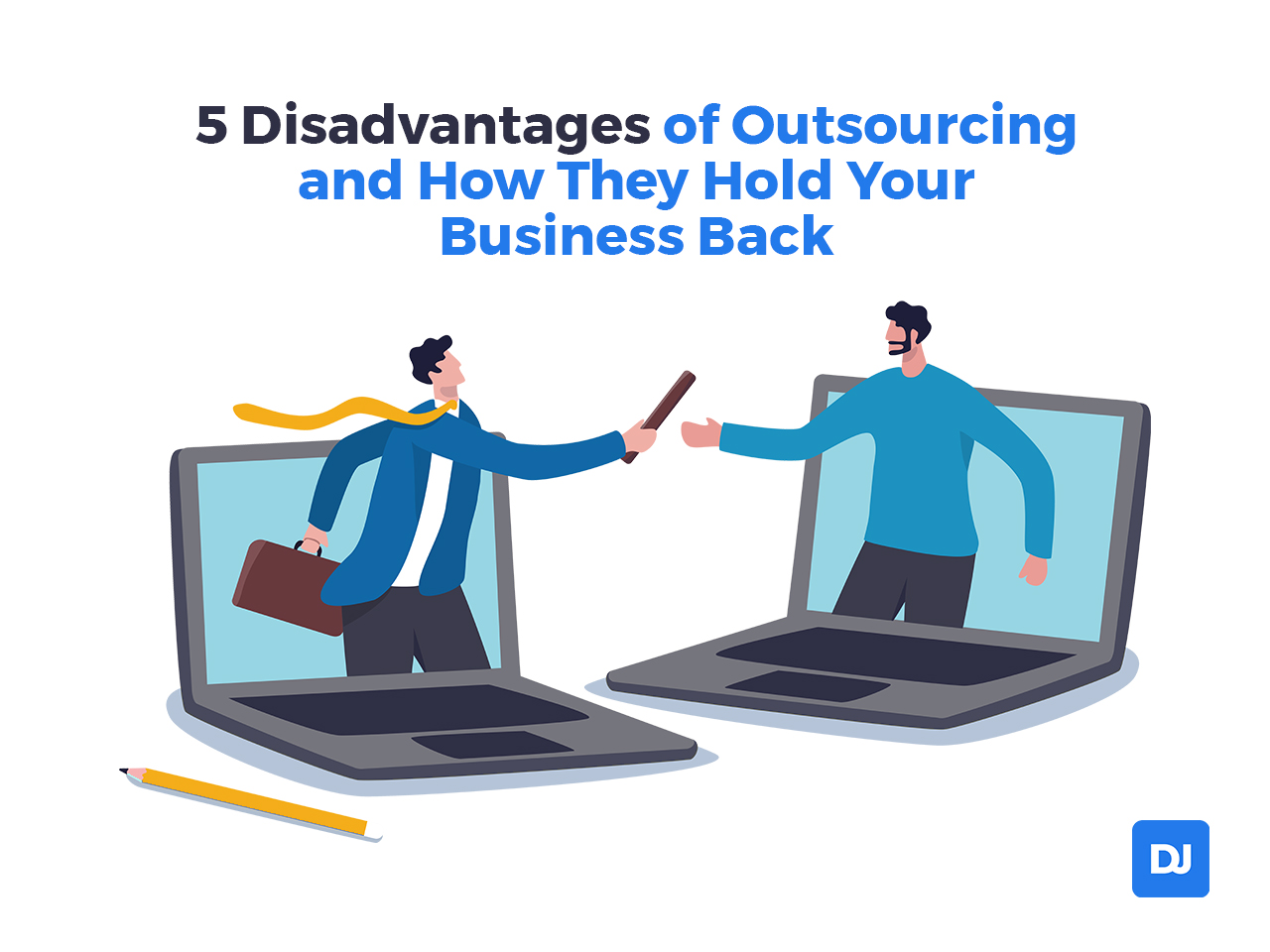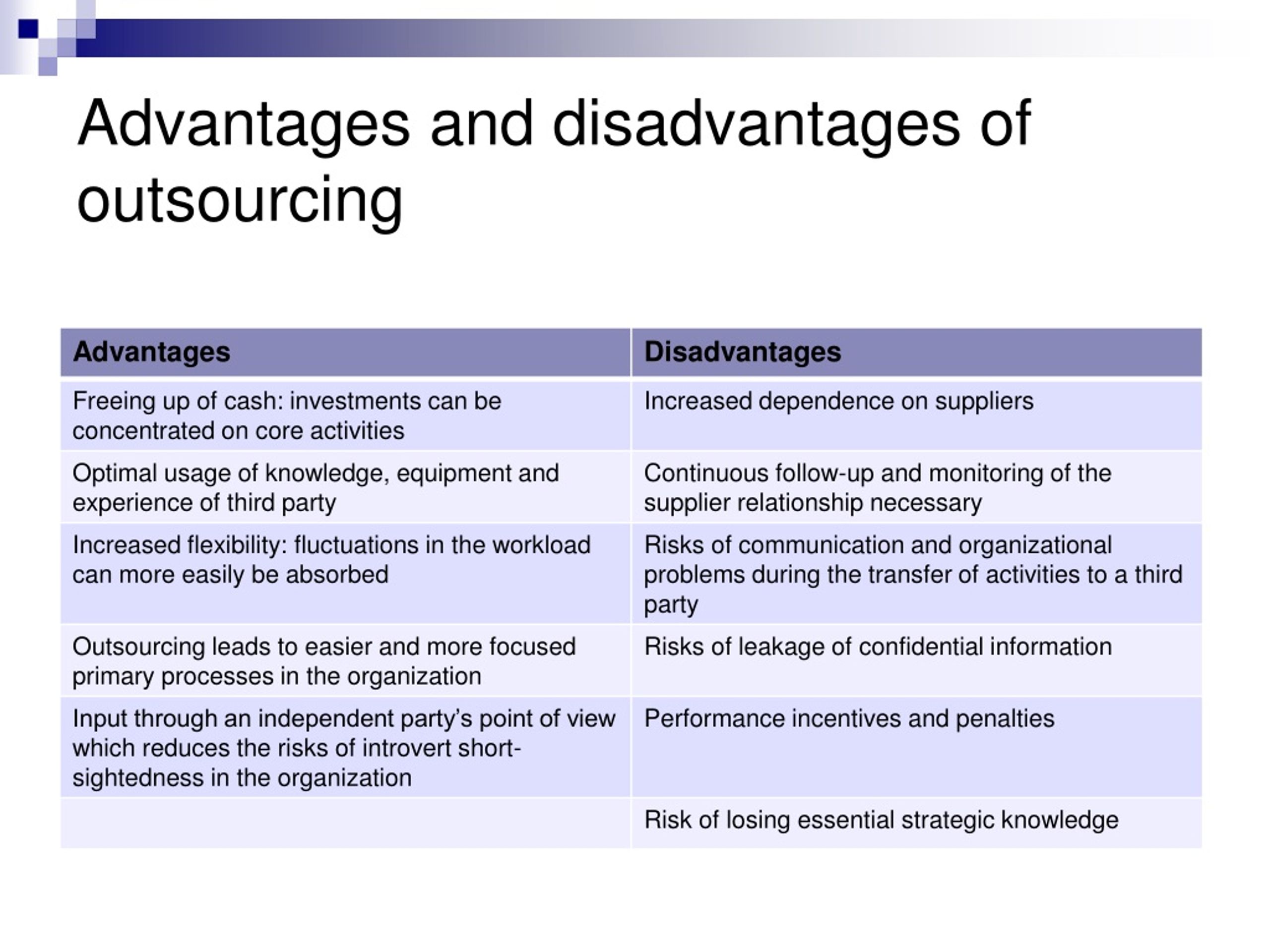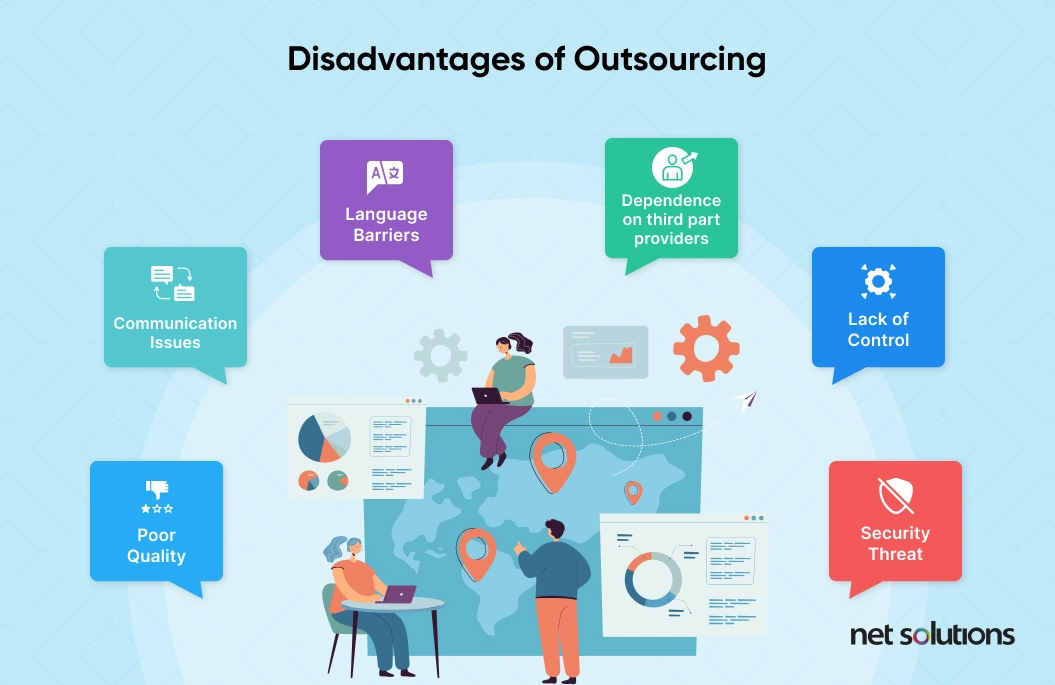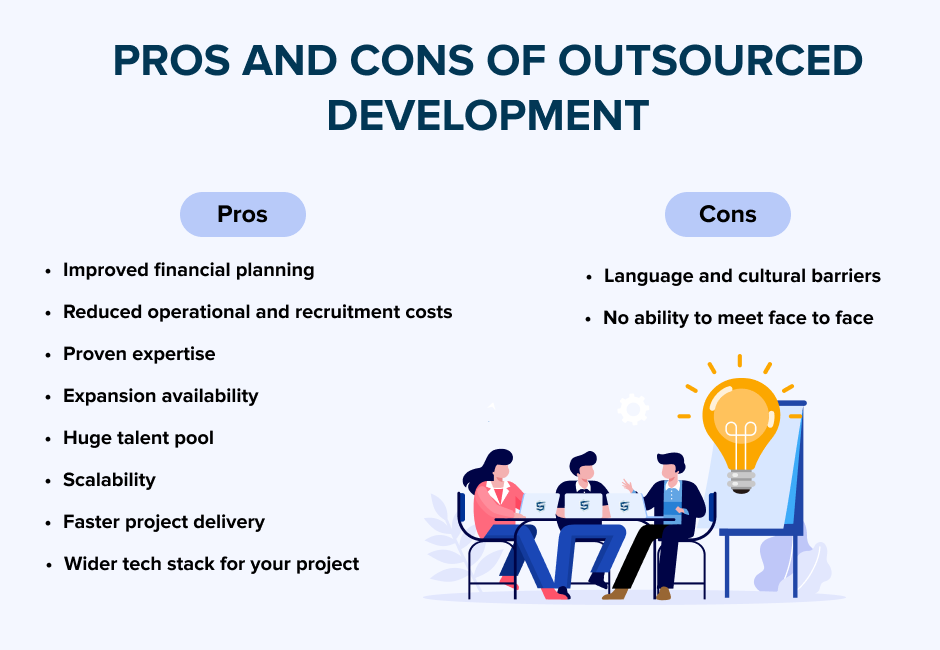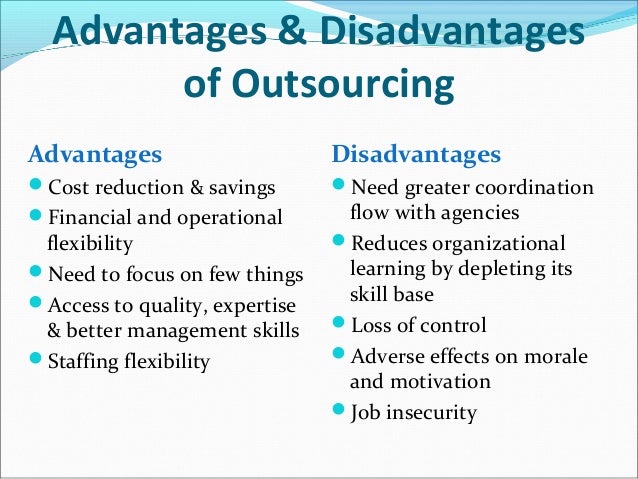What Are The Disadvantage Of Outsourcing
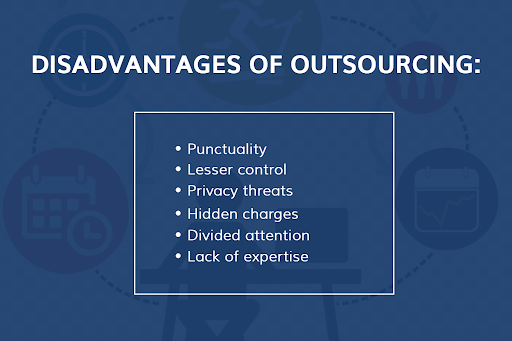
Imagine a small, family-owned bakery, renowned for its sourdough, suddenly deciding to outsource its baking to a large, industrial facility miles away. The aroma of freshly baked bread, the familiar faces of the bakers, the sense of community – all replaced by pre-packaged loaves arriving on a truck. This scenario, though simplified, touches upon the heart of a complex issue: the disadvantages of outsourcing.
While outsourcing can offer tempting benefits like cost reduction and increased efficiency, it's crucial to understand the potential drawbacks. Beyond the immediate financial gains, businesses must carefully weigh the risks to quality, control, security, and even company morale. Understanding these downsides is essential for making informed decisions about when and how to outsource.
Loss of Control and Quality Concerns
One of the most significant disadvantages of outsourcing is the potential loss of control over the outsourced function. When you entrust a core process to a third party, you're essentially relinquishing direct oversight. This can lead to inconsistencies in quality and difficulty in implementing changes quickly.
Think about a software development company outsourcing its customer support. "If the outsourced team isn't properly trained or doesn't understand the company's values," explains Sarah Chen, a technology consultant, "customers may receive inconsistent or unsatisfactory support, damaging the company's reputation."
Data Security and Confidentiality Risks
Outsourcing often involves sharing sensitive data with external providers, creating potential security vulnerabilities. Data breaches and leaks can be devastating, leading to financial losses, legal repercussions, and reputational damage. "The Ponemon Institute's 2020 Cost of a Data Breach Report" highlights that the average cost of a data breach is $3.86 million.
Companies must conduct thorough due diligence to ensure that the outsourcing provider has robust security measures in place. Implementing strict data protection agreements and regularly auditing the provider's security practices are also crucial steps.
Communication Barriers and Cultural Differences
Language barriers, time zone differences, and cultural misunderstandings can hinder effective communication with outsourced teams. This can lead to delays, errors, and frustration on both sides. Effective communication is the bedrock of any successful partnership.
"Miscommunication can easily arise when working with teams in different countries," notes David Lee, a project manager with experience in global outsourcing. "It's essential to invest in clear communication channels and cultural sensitivity training to mitigate these risks."
Impact on Employee Morale and Job Security
Outsourcing can negatively impact employee morale within the organization. The fear of job losses and the uncertainty surrounding the future can create anxiety and decrease productivity. This can lead to a decline in overall performance and innovation.
When employees feel that their jobs are at risk, they may become less engaged and less committed to the company. Transparency and open communication about the reasons for outsourcing and its potential impact on employees are essential for maintaining morale.
Hidden Costs and Long-Term Dependencies
While outsourcing is often touted as a cost-saving measure, hidden costs can quickly erode those benefits. These can include contract negotiation fees, transition costs, ongoing management expenses, and the cost of addressing quality issues. Due diligence and a careful cost-benefit analysis are essential.
Furthermore, becoming overly reliant on an outsourcing provider can create a dependency that is difficult and costly to break. "Gartner research shows that many companies underestimate the long-term costs associated with outsourcing contracts." Developing a contingency plan and maintaining a degree of in-house expertise are vital for mitigating this risk.
Ultimately, the decision to outsource should be made after a thorough assessment of the potential benefits and drawbacks. It's about striking a balance between efficiency and control, cost savings and quality, and short-term gains and long-term sustainability. The family bakery lost its charm, and its reputation for quality waned. Sometimes, keeping things closer to home is the best recipe for success.
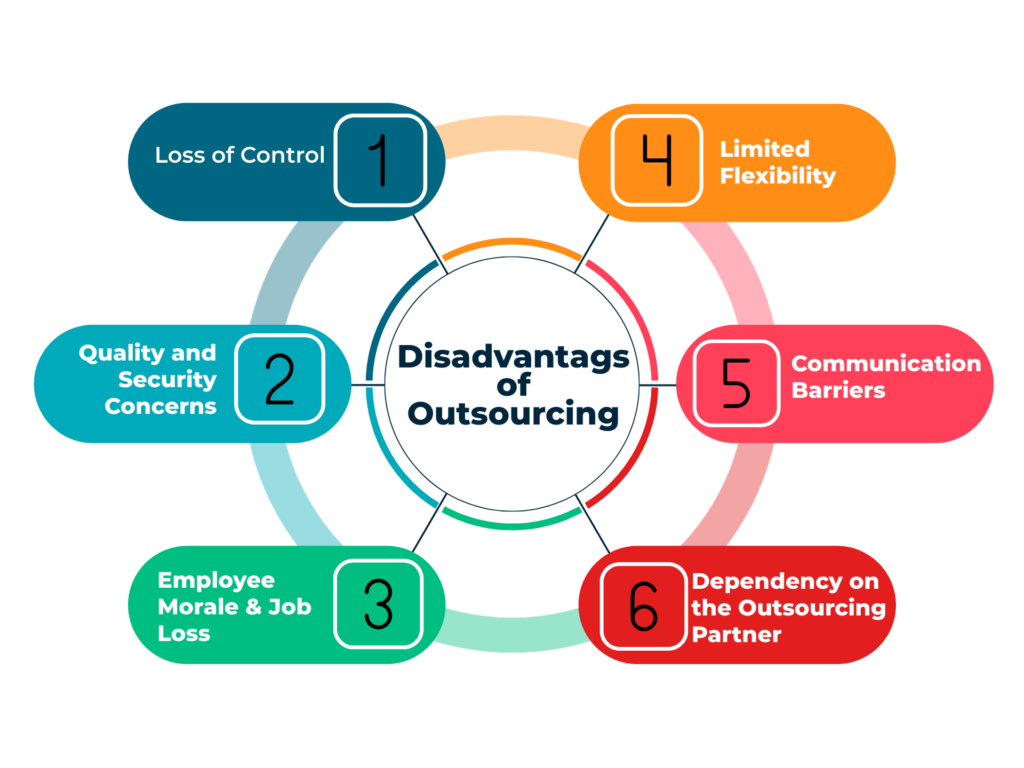
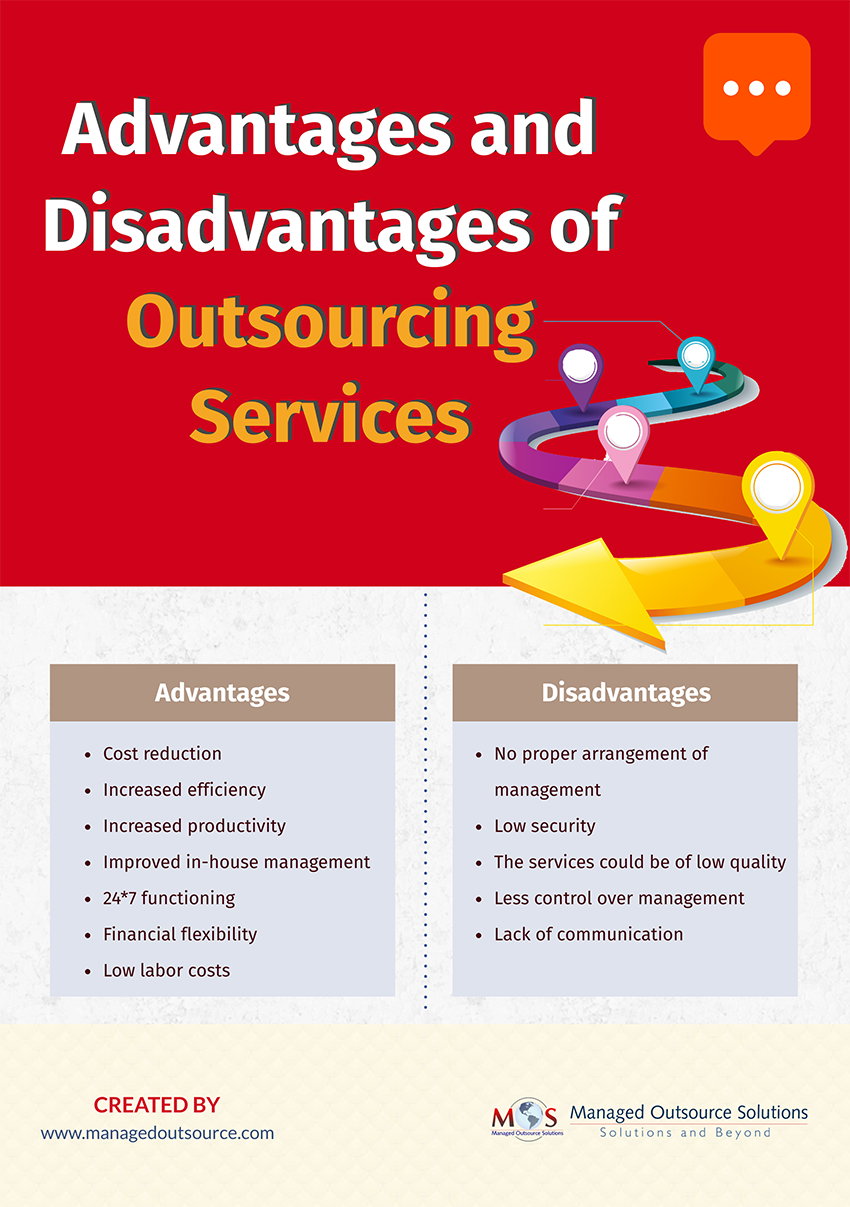
![What Are The Disadvantage Of Outsourcing IT Outsourcing: 8 Pros and Cons [2023]](https://global-uploads.webflow.com/622fa4d65a5fab0c3465af07/627938b52256a99d70dfe882_pros-cons-it-outsourcing-lists.png)

